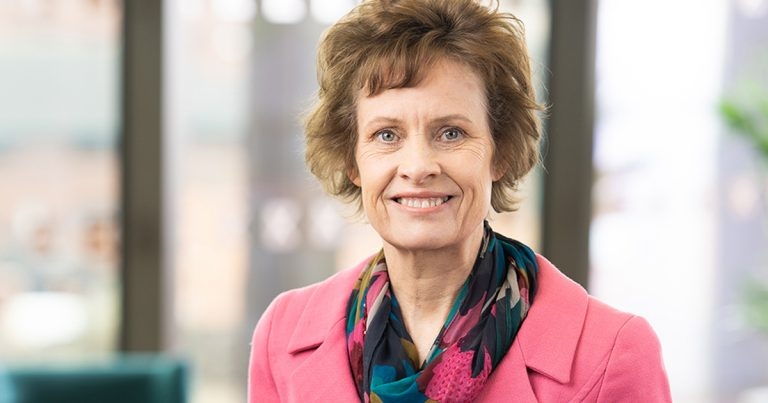18 Jul 2024
Susan Jebb, of the Food Standards Agency, warned tougher migration rules had contributed to the sector’s “very, very significant” recruitment and retention problems.

Prof Susan Jebb, FSA chairperson. Image: Food Standards Agency
More must be done to make veterinary public health roles an attractive option for both UK and overseas clinicians, the chairperson of the Food Standards Agency (FSA) has admitted.
Susan Jebb warned tougher migration rules had contributed to the sector’s “very, very significant” recruitment and retention problems as she addressed the RCVS Royal College Day in London.
But she also offered the organisation’s support for new collaborations with other stakeholders to address the issue across the professions.
She said: “We value what you do. We want to work with you and, together, we really can make a difference.”
Concerns were raised across the veterinary sector about the consequences of substantially higher salary thresholds for overseas professionals when they were introduced in the spring.
However, the impact is potentially most acute in the public health sphere and, ahead of their implementation, the FSA’s chief executive, Emily Miles, warned MPs that the measures risked imposing millions of pounds in additional costs on the organisation.
In her keynote speech at the 5 July event, Prof Jebb said only four per cent of official veterinarian roles in England and Wales were currently held by UK-trained vets.
She acknowledged it was difficult for public sector organisations to keep up with rising wages in private practice, but argued that the importance of public health careers was “not recognised nearly enough”.
She added: “It’s not just that there aren’t enough trained vets, but those who are trained rarely choose these public health roles.”
Prof Jebb described the agency as “deeply concerned” by the present workforce shortages and said the UK had been made “a less attractive option” for overseas professionals because of tougher migration rules and language requirements.
She also warned of the need to “face up to the realities” and continue investing in overseas recruitment, including potential pathways towards obtaining necessary skills.
But, while the support that the college has provided through its temporary registration scheme was praised, Prof Jebb acknowledged that such measures do not represent a sustainable solution. She said substantial progress had been made to reduce the agency’s reliance on the programme, adding: “What we need to do is to make veterinary public health roles more attractive.
“We need to encourage vets from a diverse range of backgrounds to understand that these roles can be incredibly satisfying and really can make a very significant contribution to the health and the safety of the nation.”
Prof Jebb, who is continuing as FSA chairperson on a temporary basis following the end of her scheduled term of office last month, urged clinicians and trainees interested in working in public health roles to contact the agency directly, highlighting the week-long EMS placement programme that it provides.
But she also echoed the concerns of others interested in tackling the sector’s recruitment and retention questions by calling for a move away from the traditional, Herriot-based view of veterinary work.
She said: “We need to change the perception and the culture of what being a vet means.
“We need some modern vet role models which display a much wider range of issues that vets are involved in.”